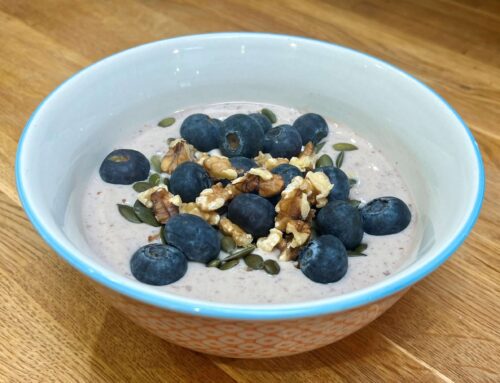What is gut microbiome and what is it’s impact on gut health?
When we’re talking about our gut health, we’re referencing the health of the whole of our digestive system; from our oesophagus down down to our bowel.
In our gut there is a community of microorganisms, such as bacteria, fungi and viruses, known collectively as out gut microbiome. Most of these microorganisms live symbiotically with our body, meaning both us and the organisms benefit. Good gut health occurs when there is a healthy balance between the good and bad bacteria in our gut microbiome.
Many factors of modern life, such as bad sleep, stress, antibiotics and processed foods can lead to the prescence of bad bacteria in the gut. There is now increasing research that links gut health to a wide range of other bodily functions and health issues such as the immune system, heart health, autoimmune diseases, depression and cancer; which is why improving gut health is such an important topic.
How microorganisms living within our gut help us:
The impact of bad gut health is far reaching, with some effects felt immediately, such as constipation, diarrhea, heartburn and sleep disturbances; and other issues developing over time. So what are the effects of good bacteria on our body?
– Bacteria stimulates the immune system to help protect us and keep us healthy;
– Bacteria can break down potentially toxic food compounds and pathogenic organisms entering our bodies through contaminated water or food, helping our body to rid them from our systems;
– New research even suggests they affect brain function, and have a regulatory effect on our anxiety and stress levels, because bacteria communicates with our central nervous system through neural, endocrine and immune pathways.
Five ways to improve our gut microbiome:
Improving and maintaining a healthy gut microbiome is obviously critical to our overall health, so here are some simple steps we can take to make a positive change…
1. Generally speaking, a healthy biome is a diverse one. So, eating a diverse range of whole, unprocessed foods will contribute to this diversity, and therefore improve gut health;
2. Eat foods high in fibre. Our body cannot digest fibre, but growth of certain microorganisms is stimulated by it;
3. Eat probiotic or fermented foods such as yoghurt (with live or natural cultures), sauerkraut (unpasteurised) or kefir, which help to restore the healthy balance of bacteria in the gut;
4. Try to reduce stress levels as stress can cause bacteria to seep through the gut and cause inflammation throughout the body;
5. Stay hydrated. Water helps to break down food so the body can absorb the nutrients in the gut and remove toxins from the body.
Further Reading
Read more about Fibre HERE.
Read more about eating well on a budget HERE.
Read some simple tips for sleeping better HERE.








Leave A Comment